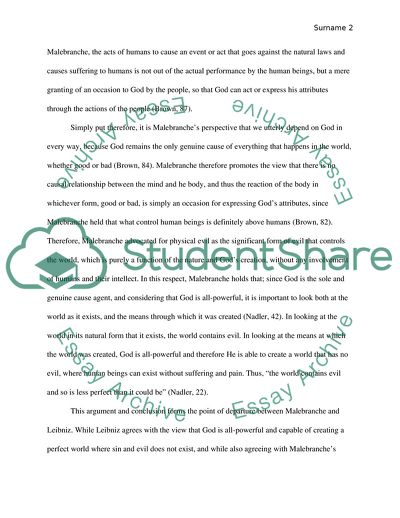Cite this document
(Malebranche and Leibniz Solution to Evil Essay Example | Topics and Well Written Essays - 1250 words, n.d.)
Malebranche and Leibniz Solution to Evil Essay Example | Topics and Well Written Essays - 1250 words. https://studentshare.org/philosophy/1825339-malebranche-and-leibniz-solution-to-evil
Malebranche and Leibniz Solution to Evil Essay Example | Topics and Well Written Essays - 1250 words. https://studentshare.org/philosophy/1825339-malebranche-and-leibniz-solution-to-evil
(Malebranche and Leibniz Solution to Evil Essay Example | Topics and Well Written Essays - 1250 Words)
Malebranche and Leibniz Solution to Evil Essay Example | Topics and Well Written Essays - 1250 Words. https://studentshare.org/philosophy/1825339-malebranche-and-leibniz-solution-to-evil.
Malebranche and Leibniz Solution to Evil Essay Example | Topics and Well Written Essays - 1250 Words. https://studentshare.org/philosophy/1825339-malebranche-and-leibniz-solution-to-evil.
“Malebranche and Leibniz Solution to Evil Essay Example | Topics and Well Written Essays - 1250 Words”. https://studentshare.org/philosophy/1825339-malebranche-and-leibniz-solution-to-evil.


